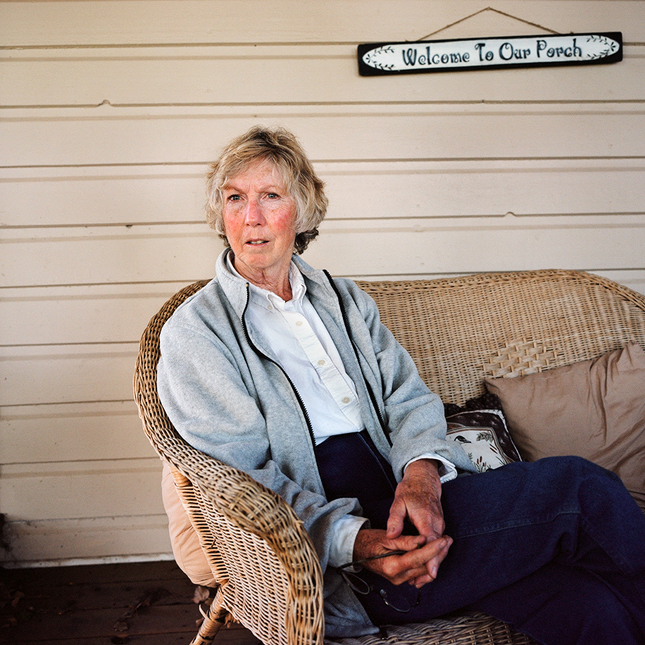3 Linda Hussa
Audio
-

Linda Hussa at Hussa Ranch. Cedarville, Modoc County.
-
"When I look that way, to the east, it’s 200 miles to the nearest town, that’s Winnemucca. When I look south, it’s 180 to Reno. When I look west, it’s 180 to Redding. There is nothing to stop your mind. It just splatters out and it just soaks it all up and brings it all into you."
The last battle between Native Americans and Western settlers took place in the Black Rock Desert, just east of Surprise Valley, in the winter of 1911. Months later, Walter and Elizabeth Hussa arrived in the valley and settled in Cedarville. This year, their grandson John and his wife, Linda, celebrated the ranch’s centennial.
At the height of the Hussa Ranch’s history, John and Linda ran eight hundred head of cattle just across the valley in Nevada, work that meant riding their three hundred square miles of rangeland on horseback, many times each year. That work and the life it brings is the kindling for Linda’s skilled poetry and non-fiction writing, for which she has won several national awards. The lines she composes are not what we commonly think of as “cowboy poetry,” but rather delicate frames that focus the reader’s attention on the real experience of a life like hers.
“If your poetry isn’t based on something that’s important to you—family, place, the purpose of your life—well then it’s kind of empty isn’t it? Because it has to have that passion to affect other people, to make other people care about what you are saying. They have to hear that there is something there,” she told me. “I always wanted people to understand what was going on in the rural routes. And that there certainly should be some regard for the people there. Because I see beauty in this life, I don’t think it is lonesome. And I don’t think it is dumb.”
- Prev
- Next
- Next Story
